Related Research Articles

The Petition of Right, passed on 7 June 1628, is an English constitutional document setting out specific individual protections against the state, reportedly of equal value to Magna Carta and the Bill of Rights 1689. It was part of a wider conflict between Parliament and the Stuart monarchy that led to the 1639 to 1653 Wars of the Three Kingdoms, ultimately resolved in the 1688-89 Glorious Revolution.

Cesare Bonesana di Beccaria, Marquis of Gualdrasco and Villareggio was an Italian criminologist, jurist, philosopher, economist and politician, who is widely considered one of the greatest thinkers of the Age of Enlightenment. He is well remembered for his treatise On Crimes and Punishments (1764), which condemned torture and the death penalty, and was a founding work in the field of penology and the Classical School of criminology. Beccaria is considered the father of modern criminal law and the father of criminal justice.
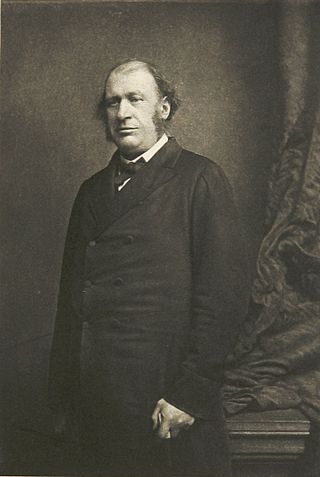
Sir James Fitzjames Stephen, 1st Baronet, KCSI was an English lawyer, judge, writer, and philosopher. One of the most famous critics of John Stuart Mill, Stephen achieved prominence as a philosopher, law reformer, and writer.

Thomas Erskine, 1st Baron Erskine, was a British Whig lawyer and politician. He served as Lord High Chancellor of Great Britain between 1806 and 1807 in the Ministry of All the Talents.

Sir Samuel Romilly, was a British lawyer, politician and legal reformer. From a background in the commercial world, he became well-connected, and rose to public office and a prominent position in Parliament. After an early interest in radical politics, he built a career in chancery cases, and then turned to amelioration of the British criminal law.

Woolmington v DPP [1935] AC 462 is a landmark House of Lords case, where the presumption of innocence was re-consolidated.

The Murder Act 1965 is an act of the Parliament of the United Kingdom. It abolished the death penalty for murder in Great Britain. The act replaced the penalty of death with a mandatory sentence of imprisonment for life.
David Wilson is a Scottish emeritus professor of criminology at Birmingham City University. A former prison governor, he is well known as a criminologist specialising in serial killers through his work with various British police forces, academic publications, books and media appearances.

Sir William Garrow was an English barrister, politician and judge known for his indirect reform of the advocacy system, which helped usher in the adversarial court system used in most common law nations today. He introduced the phrase "presumed innocent until proven guilty", insisting that defendants' accusers and their evidence be thoroughly tested in court. Born to a priest and his wife in Monken Hadley, then in Middlesex, Garrow was educated at his father's school in the village before being apprenticed to Thomas Southouse, an attorney in Cheapside, which preceded a pupillage with Mr. Crompton, a special pleader. A dedicated student of the law, Garrow frequently observed cases at the Old Bailey; as a result Crompton recommended that he become a solicitor or barrister. Garrow joined Lincoln's Inn in November 1778, and was called to the Bar on 27 November 1783. He quickly established himself as a criminal defence counsel, and in February 1793 was made a King's Counsel by HM Government to prosecute cases involving treason and felonies.

William Calcraft was a 19th-century English hangman, one of the most prolific of British executioners. It is estimated in his 45-year career he carried out 450 executions. A cobbler by trade, Calcraft was initially recruited to flog juvenile offenders held in Newgate Prison. While selling meat pies on streets around the prison, Calcraft met the City of London's hangman, John Foxton.
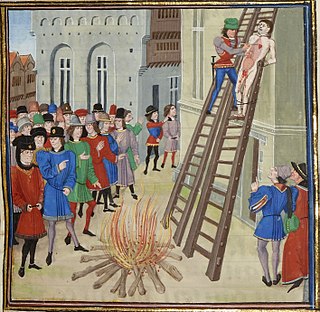
To be hanged, drawn and quartered became a statutory penalty for men convicted of high treason in the Kingdom of England from 1352 under King Edward III (1327–1377), although similar rituals are recorded during the reign of King Henry III (1216–1272). The convicted traitor was fastened to a hurdle, or wooden panel, and drawn behind a horse to the place of execution, where he was then hanged, emasculated, disembowelled, beheaded, and quartered. His remains would then often be displayed in prominent places across the country, such as London Bridge, to serve as a warning of the fate of traitors. For reasons of public decency, women convicted of high treason were instead burned at the stake.
The Five Knights' case (1627) 3 How St Tr 1, is a case in English law, and now United Kingdom constitutional law, fought by five knights in 1627 against forced loans placed on them by King Charles I in a common law court.

Garrow's Law is a British period legal drama about the 18th-century lawyer William Garrow. The series debuted on 1 November 2009 on BBC One and BBC HD. A second series was announced on 7 July 2010 and was broadcast from 14 November 2010. A third series consisting of four episodes was commissioned and was aired from 13 November 2011. Garrow's Law was cancelled after three series in February 2012.

The Hale Commission was established by the Commonwealth of England on 30 January 1652 and led by Sir Matthew Hale to investigate law reform. Consisting of eight lawyers and thirteen laymen, the Commission met approximately three times a week and proposed changes as radical as reducing the use of the death penalty, allowing witnesses, legal aid and lawyers for defendants in criminal cases and creating county courts and a court of appeal for criminal cases. Though the Commission was unsuccessful at passing any of its measures under the Rump Parliament, two of its measures were put into law by the subsequent Barebone's Parliament, and, by the middle of the 20th century, most of the others were as well. Debate has occurred over the effectiveness and strife within the Commission between its more moderate and radical members; the general conclusion is that with the sheer volume of work produced and the vast proportion of moderate to radical members, it is unlikely such strife existed.
The Centre for Crime and Justice Studies (CCJS) is a charity based in the United Kingdom focusing on crime and the criminal justice system. It seeks to bring together people involved in criminal justice through various means, including publications, conferences, and courses.
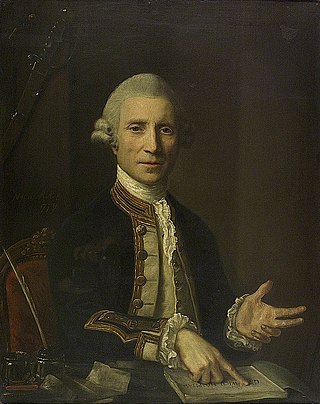
R v Baillie, also known as the Greenwich Hospital Case, was a 1778 prosecution of Thomas Baillie for criminal libel. The case initiated the legal career of Thomas Erskine. Baillie, the Lieutenant-Governor of the Greenwich Hospital for Seamen, a facility for injured or pensioned off seamen, had noted irregularities and corruption in the hospital, which was formally run by the Earl of Sandwich. After his official reporting of the problems failed to bring about reform in the hospital, Baillie published a pamphlet that was critical of the hospital's officers, alleging that Sandwich had given appointments to pay off political debts; Sandwich ignored the pamphlet but ensured that Baillie was indicted for criminal libel. Baillie hired five barristers, including Erskine, then newly called to the Bar, and appeared before Lord Mansfield in the Court of King's Bench on 23 November 1778.

The Trial of Lord George Gordon for high treason occurred on 5 February 1781 before Lord Mansfield in the Court of King's Bench, as a result of Gordon's role in the riots named after him. Gordon, President of the Protestant Association, had led a protest against the Papists Act 1778, a Catholic Emancipation bill. Intending only to hand in a petition to Parliament, Gordon riled the crowd by postponing of the petition, denouncing Members of Parliament and launching "anti-Catholic harangues". The crowd of protesters fragmented and began looting nearby buildings; by the time the riots had finished a week later, 300 had died. Gordon was almost immediately arrested, and indicted for levying war against the King.
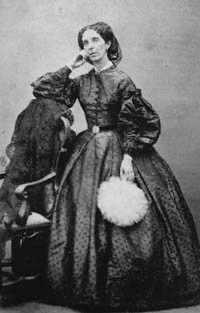
Theodosia Trollope was an English poet, translator, and writer known also for her marriage into the Trollope family. She married and bought a villa in Florence, Italy with her husband, Thomas Adolphus Trollope. Her hospitality made her home the centre of British society in the city. Her writings in support of the Italian nationalists are credited with changing public opinions.
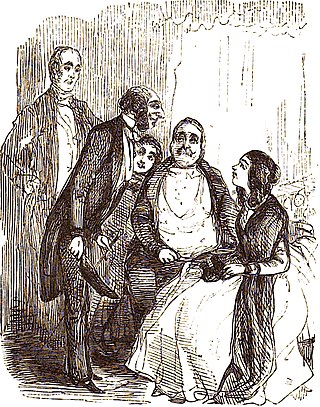
William Garrow Lettsom FRAS was a British diplomat and scientist. He was instrumental in revealing the text of the secret Treaty of the Triple Alliance between Argentina, the Empire of Brazil and Uruguay.
Defence Secretariat 19 (DS19) was a special unit set up within the British Ministry of Defence by Michael Heseltine in March 1983. Its purpose was to combat the Campaign for Nuclear Disarmament (CND) and all calls for unilateral nuclear disarmament.
References
- ↑ "John Hostettler (1925-2018)". 29 October 2018.
- ↑ "CRIMSOC - Patrons". Archived from the original on 30 May 2012. Retrieved 15 May 2015.
- ↑ "A History of Criminal Justice" J. Hostettler 2009 p. x
- ↑ "The Books of John Hostettler". Hostettler.co.uk. Retrieved 7 May 2015.
- ↑ "Sir William Garrow" J. Hostettler and R. Braby 2010 p. iv
- ↑ University of Sussex 26 January 2007 Press Release "Students celebrate success at winter graduation 2007."
- ↑ Graham Virgo: The Cambridge Law Journal 51 pp 394–396 and A.T.H. Smith: Criminal Law Review 1993 pp 328–9
- ↑ This book was cited in the case of Anthony Heaney and William McGuiness v. Ireland and the Attorney General on 23 July 1996. 1 ILRM. (1997 p.126.)
- ↑ Tony Girling, past president of the Law Society. The Law Society Gazette (1997)
- ↑ Dan Bindman The Law Society Gazette 19 June 1996 p.33
- ↑ R.D McCrie, John jay, College of Criminal Justice in Current Reviews for Academic Libraries, (Choice) in the USA (1 January 2010.)
- ↑ http://keepcalmtalklaw.co.uk at 12.30 15 September 2014 references “History of Criminal Justice,” in “Johnson’s Presumption of Guilt is No Solution to Jihad John.”
- ↑ House of Commons Library: The History of the Parliamentary Franchise Research Paper 13/14 1 March 2013 references “Voting in Britain.”
- ↑ "Book Prize 2013 | the Orwell Prize". Archived from the original on 18 May 2015. Retrieved 13 May 2015.
- ↑ "The Books of John Hostettler". Hostettler.co.uk. Retrieved 7 May 2015.